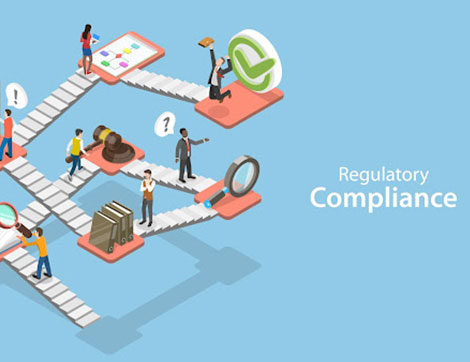Organisations face many compliance risks, and a key part of managing these risks is ensuring that learners receive quality training according to the policies and procedures of the training organisation and set standards, guidelines and regulations set by the regulatory body and Australian Government. This is where trainers play a vital role in maintaining compliance within a training organisation.
As experts in adult learning theory and instructional design, trainers are uniquely positioned to develop, deliver and evaluate engaging and effective training programs that help learners understand the relevant concepts and topics.
The role of trainers in maintaining compliance is essential to ensuring that learners receive the best possible training experience. By maintaining a good relationship with learners and being familiar with the training organisation’s requirements, you can help to ensure that learners are able to comply with the training organisation’s rules and regulations. Additionally, by being familiar with the training organisation’s complaint procedures, you can help to ensure that any complaints that learners have are dealt with in a fair and transparent manner.
Use of compliant training and assessment materials
Make sure that the training materials you use are compliant with the latest requirements and standards. This includes ensuring that any third-party materials you use to meet these criteria too.
Training meets regulatory requirements and standards
Deliver training that meets the required standards. This means following the correct procedures and using approved methods and materials.
All assessments have been assessed fairly and accurately
As a trainer, it is your responsibility to ensure that all assessments are conducted fairly and correctly. This means that you must be able to identify any potential areas of non-compliance and take steps to address them. This includes adhering to the principles of assessment and rules of evidence.
Evaluate training on an ongoing basis
Evaluate training regularly to check that it is still meeting compliance requirements and standards. This may involve conducting audits, surveys or other reviews.
Participate in the learner and assessment validation sessions
Take action to address any areas of non-compliance.
This could involve changing the way training is delivered, updating materials or taking disciplinary action against employees who do not meet the required standards.
There are a number of ways that you can do this:
Keep up to date with changes in legislation and policy. This includes changes to government regulations, industry codes of practice and your organisation’s own policies. You can do this by subscribing to newsletters or alerts from relevant organisations, such as the Australian Skills Quality Authority (ASQA).
Make sure you understand the requirements of the legislation and policy. This includes understanding what the requirements are and how they apply to your specific situation.
Comply with the requirements of the legislation and policy. This includes ensuring that all training activities are carried out in accordance with the relevant legislation, codes of practice and organisational policies.
Monitor compliance with the legislation and policy. This includes regularly checking to ensure that training activities are being carried out in line with the relevant legislation, codes of practice and organisational policies.
Ensure that all assessors in your organisation are properly trained and qualified. This will ensure that they are familiar with the latest changes to the relevant regulations and standards and that they are able to conduct assessments accurately and fairly.
Take action to address any non-compliance with the legislation and policy. This includes taking steps to ensure that training activities are carried out in line with the relevant legislation, codes of practice and organisational policies.
By following these strategies, you can help to ensure that your organisation’s training activities are compliant with the relevant legislation, codes of practice and organisational policies.




